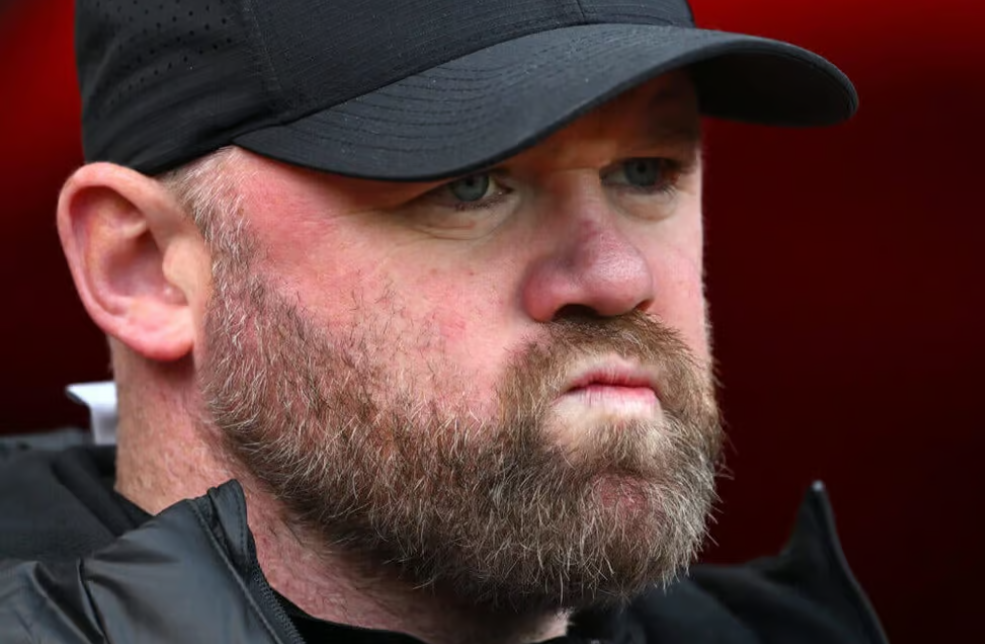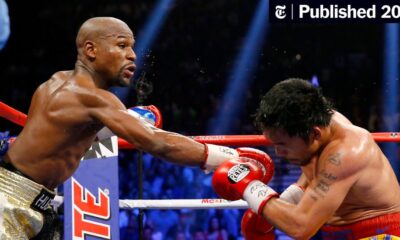Star Profile
From 6th to 18th: Wayne Rooney’s coaching ‘curse continues’ at Birmingham FC

Garry Cook, Birmingham City’s chief executive, opted against restraint when welcoming Wayne Rooney to St Andrew’s last month.
“This is a defining moment for the football club,” he said in a punchy opening appraisal of the Championship club’s new manager.
Perhaps time will make a prophet of Cook, but the grand vision he was selling to supporters in the wake of John Eustace’s sacking is yet to crystalise. Five games under Rooney have so far yielded four dispiriting losses and one underwhelming point. All glitter, no gold.
Birmingham were fifth on the night of Eustace’s final game, a 3-1 home win against local rivals West Bromwich Albion, and sixth on the day Rooney was named his successor. A month on and they are 18th in the second tier, seven points adrift of the play-offs and sinking like a stone.
The three-and-a-half-year contract given to Rooney indicates judgments will not be made with haste, but Saturday’s 3-1 away defeat against Sunderland again revealed an uncertain team struggling to grasp the methods of a new manager.
The Gaffer’s take on this afternoon’s game in Sunderland. 🗣️
— Birmingham City FC (@BCFC) November 11, 2023
Rooney clung to the positives at the Stadium of Light, the scene of his first start for England against Turkey 20 years ago. He pointed to Birmingham’s best moments late in the first half and bemoaned their missed chances.
Yes, Birmingham might have scored three or four with greater conviction in front of goal, but it is little exaggeration to suggest Sunderland could have had twice as many. The abundant attacking threats of Tony Mowbray’s sixth-placed side exposed all the shortcomings of this evolving Birmingham one.
A work in progress would be the polite assessment.
Rooney has been tasked with transforming what has become a middling Championship club.
Co-owner and chairman Tom Wagner had no wish to see Eustace’s pragmatic reign unduly extended and instead went for the stardust of a man who is Manchester United’s record goalscorer and until this year held the same status for England, along with a stellar support staff that includes England cap centurion and three-time Premier League winner Ashley Cole and John O’Shea, who won even more caps with the Republic of Ireland and even more Premier Leagues (five).
They, Wagner felt, would change the dynamic at St Andrew’s, altering the club’s philosophy and style.
No easy task when arriving a quarter of the way into a season, especially when the new regime’s opening five games all came against teams among the Championship’s top 10.
Yet even with those allowances, it has been a start to test the bravado of Cook.
Only a draw at home against Ipswich Town, a result made less impressive by the concession of two late goals as a 2-0 lead went up in smoke, has snapped a pattern that has brought defeats to Middlesbrough, Hull City, Southampton and now Sunderland. In his five matches, Rooney’s Birmingham have conceded 11 goals and scored four.
“We can’t keep saying we’ve seen improvements, we have to start picking up results,” accepted Rooney, baseball cap pulled down low above his eyes. “I really believe we will. What I’m seeing from the players is really positive.”
Birmingham are a long way from the January transfer window, when the chance will come to recruit players to suit Rooney’s needs, and the short-term will need to bring better results. Their next two home games are against Sheffield Wednesday and Rotherham United, two of the current bottom three. Defeat in either of those fixtures will be much harder to explain away.
Rooney feels the timing of this international break has at least come as a blessing — a chance to work on the fitness of his players, who struggle to do all he asks of them across the full 90 minutes.
“The way they played before was completely different, sitting back a lot,” says the man who spent the previous 15 months managing DC United in MLS. “I’m asking players to be front-footed and to go and press high. It’s really intense. A different fitness level to what they’ve been used to. That’ll take a bit of time.”
Sunderland yesterday looked like a side that perhaps Wagner would like Birmingham to become.
The wide threats of Jack Clarke and Patrick Roberts stretched play throughout, while Jobe Bellingham and Dan Neil were able to break the lines from midfield. Sunderland were often scruffy in a makeshift defence but Birmingham could have few complaints about their latest defeat.
Teenager Bellingham, sold by Birmingham’s new regime in the summer, opened the scoring from a corner that Rooney felt should have been a goal kick, then hit the same post his Ukrainian team-mate Nazariy Rusyn had earlier rattled. Birmingham responded well enough to equalise through Koji Miyoshi before half-time but a Dion Sanderson own goal and a third from Adil Aouchiche were enough to eventually see Sunderland win at a canter.
Rooney watched most of it from a default position in the technical area; feet planted and wide apart, arms folded.
“I enjoy it every day,” he insisted afterwards. “I enjoy working with the players. Of course, you get disappointment when you’re losing games of football but if you can’t enjoy coming in and doing what I’ve been tasked with doing for this club, then you’re never going to enjoy football.”
Birmingham’s new season was supposed to be different, but even with a name like Rooney in charge, it has begun to feel a lot like those that came before it.

-

 Premier League1 day ago
Premier League1 day agoArsenal Star Olivia Smith Stretchered Off In FA Cup Scare — What It Means For The Gunners
-

 LaLiga1 day ago
LaLiga1 day agoHansi Flick Explains Lamine Yamal’s Frustration After Barcelona Win
-

 News1 day ago
News1 day agoAngry Arne Slot Slams Liverpool’s ‘Worst Performance’ Despite Late Win At Nottingham Forest
-

 Local News1 day ago
Local News1 day agoAlex Iwobi Masterclass Powers Fulham Revival At Sunderland
-

 Local News1 day ago
Local News1 day agoNaija Stars Abroad: Goals, Grit And One Absence That Shook Istanbul
-

 Premier League1 day ago
Premier League1 day agoAlex Iwobi: The Manager’s Dream Lighting Up Fulham’s Season
-

 More Sports7 hours ago
More Sports7 hours agoMayweather Vs Pacquiao 2: Boxing Legends Set For Historic Netflix Showdown In Las Vegas
-

 News6 hours ago
News6 hours agoArsenal Star Eberechi Eze Leads Premier League Glam Squad At London Fashion Week




















